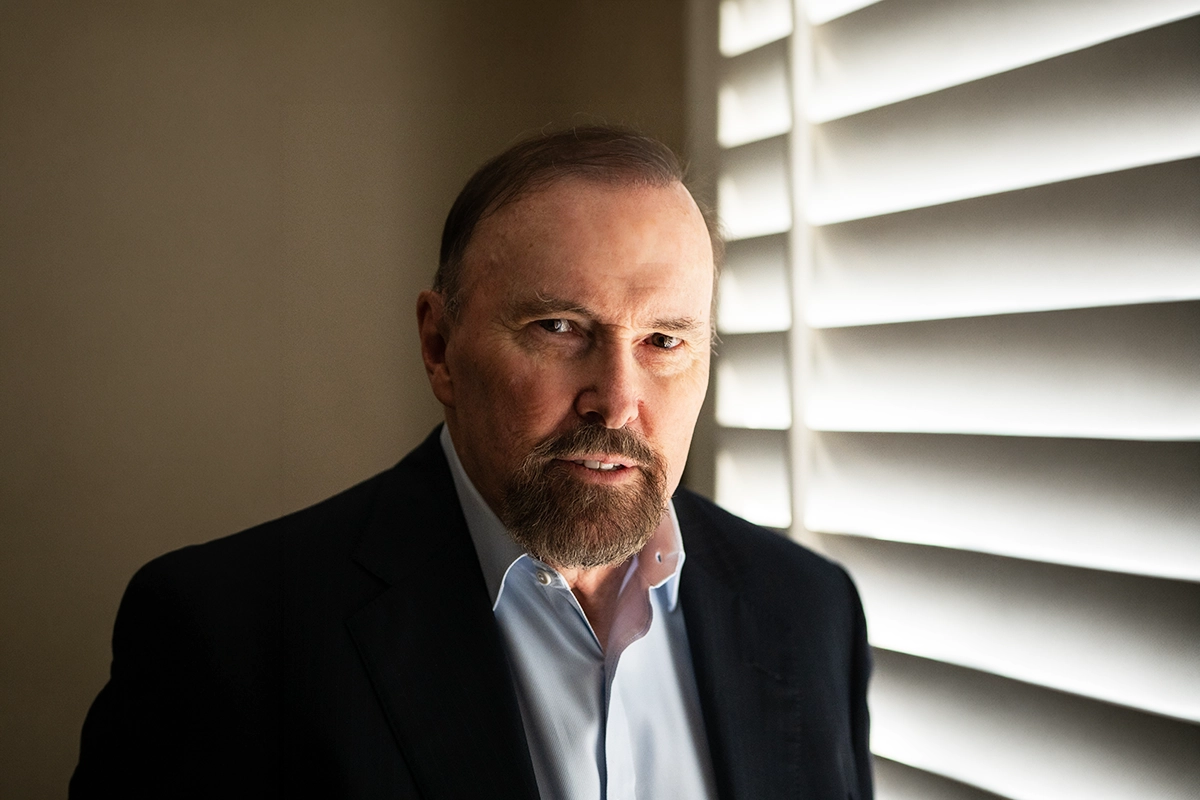Mark MacDonald Shares His Expertise On Effective Church Branding And Communication

Building A Strong Brand For Churches That Resonate With Their Communities
Mark MacDonald, founder of Be Known For Something, discusses his journey in church branding and shares actionable strategies for enhancing communication and connection.
Mark MacDonald has spent over three decades mastering the art of effective communication and branding. His expertise spans both the commercial and faith-based sectors, with a deep understanding of how powerful, strategic branding can shape perceptions and drive success. As the founder of Be Known For Something, MacDonald has helped countless churches refine their messaging, ensuring they stand out and make an impact in an increasingly noisy world. In this interview, Mark reflects on his journey from advertising executive to church branding strategist, offering invaluable insights on how faith-based organisations can communicate their message more clearly and authentically. Whether you’re leading a church or running a business, Mark’s approach to intentional branding speaks to anyone looking to connect more deeply with their audience.
Mark’s insights are invaluable for churches and organisations seeking to refine their messaging and build meaningful connections with their audience.
With over three decades of experience in church communication and branding, what pivotal moments led you to establish ‘Be Known for Something’ as a dedicated church branding company?
When I transitioned from leading a large Canadian ad agency to working with churches, I was struck by how poorly most faith organizations communicate. Especially in a world that’s become incredibly noisy and competitive for attention. One pivotal moment was sitting in a pew as a visitor and realizing, “If I didn’t already believe, nothing being said would make me want to.” That gap between message and audience connection drove me to start Be Known for Something. Churches have the most important message in the world, but if no one hears it, what’s the point? I wanted to help them discover how to say it better, strategically, and consistently, so they could be known for something relevant and not just for what they’re against.
Your book emphasizes the importance of churches discovering their unique ‘thread’ to connect with their communities. Could you elaborate on the process of identifying this thread and its impact on church growth?
Absolutely. It’s the core principle of the book and company. The “thread” is the golden idea a church (business, organization, or person) wants to be known for. Something that solves a real need in their intended audience. We don’t make it up; we uncover it by researching the church’s audience (congregation and community), and then combining those insights with what the church does well. It’s not about slogans or taglines. It’s about resonance and meeting needs. Once identified, that thread (3-5 words that control the story arc) informs branding, communication, and even ministries. The result? People outside the church finally say, “That’s what I need.” Churches that consistently communicate their thread become attractive, clear, and essential—often reversing years of decline.
Considering that over 80% of evangelical churches are in decline or stagnation, as mentioned in your book, what common communication challenges have you observed that contribute to this trend?
Three major issues surface again and again:
1. Lack of focus. Many churches try to be everything to everyone. That confuses people and dilutes their impact. Try to reach everyone? You’ll end up reaching no one.
2. Inconsistent messaging. Visuals, language, and tone change weekly. People stop paying attention when they can’t recognize the voice. The church often adds to the noise problem rather than fixing it.
3. Internal jargon. Churches often speak in “insider” language. Outsiders feel like they’re listening to a foreign language. The local church ends up feeling like a private club.
When a church doesn’t clearly communicate its value or relevance, people tune out — even faithful members. Clarity and consistency are mission-critical.
In the post-COVID era, how have the dynamics of church branding and communication evolved, and what strategies do you recommend for churches to effectively re-engage with their congregations and communities?
COVID-19 forced churches to go digital fast, but now many are retreating from those efforts. That’s a mistake. Today’s audience expects online-first communication. Here are a few things I would recommend:
1. Strengthen your digital front door. Your website and social media must feel current, helpful, and welcoming. Building your brand thread and making it interesting.
2. Clarify your message. Don’t try to say everything. Say one thing clearly. Your thread.
3. Listen to your community. Their needs have changed. Adjust solutions accordingly.
The most effective post-COVID churches are empathetic, consistent, and hyper-local. They’ve rediscovered the importance of being known for something that matters today.
Reflecting on your journey from being the Senior Creative Director of a large Canadian ad agency to becoming a church branding strategist, how has your perspective on branding transformed when applied to faith-based organizations?
In the marketplace, branding is about driving revenue. In the church, it’s about driving relevance for the Gospel message. That’s a huge shift. I used to think branding was just logos and ads but now I know it’s about relationships. It’s the perception people have about you based on repeated experiences. The emotional aftertaste when someone comes in contact with you. The same principles apply to churches, but the stakes are higher. We’re not selling products, we’re communicating Hope. And that requires branding with a heart. When done well, church branding becomes a ministry itself, guiding people to the Gospel through consistent, compelling communication.
Branding isn’t just a business strategy — it’s a life reality. Whether you’re leading a church, running a company, or simply navigating your personal journey, you’re known for something. The question is: is it what you want to be known for? As we’ve seen in churches, when clarity, consistency, and relevance come together, growth and impact follow. The same applies outside the worship center’s walls. In a world that quickly judges based on perception, those who take control of their message stand out and influence others. Branding isn’t manipulation — it’s intentionality. And, whether you’re sharing the Gospel, a product, or your own values, it’s worth asking: What am I known for, and does it matter to the people I’m trying to reach?
It’s sobering. Be known for something relevant and needed! Discover your thread.
“Branding isn’t just a business strategy — it’s a life reality.” – Mark MacDonald













